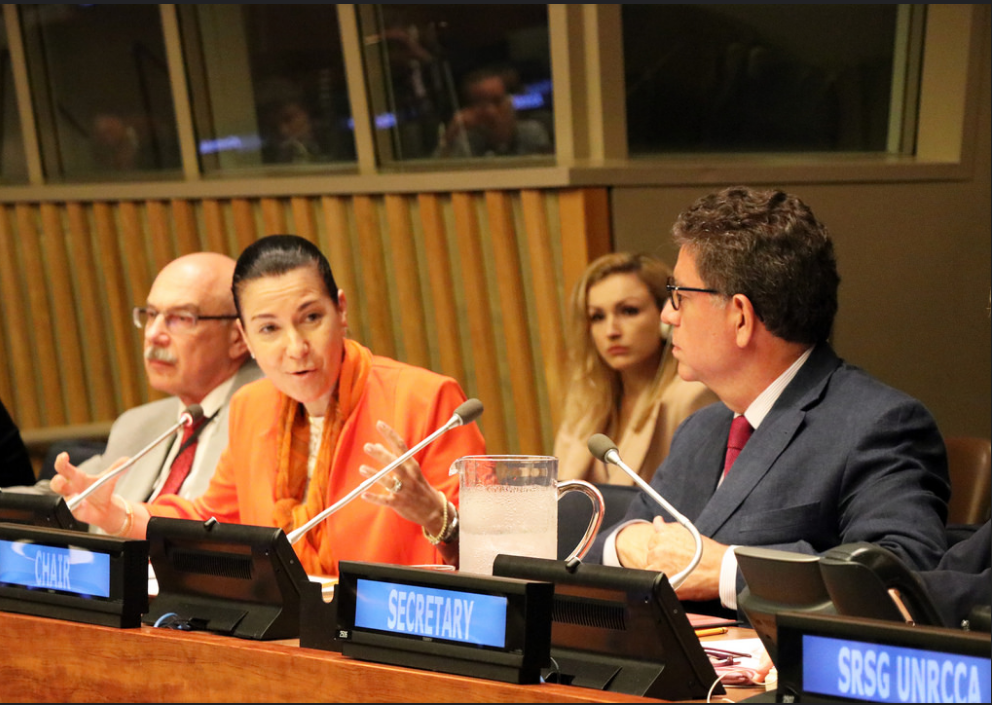-

02 July, 2018
Representatives of the five States (Kazakhstan, Kyrgyzstan, Tajikistan, Turkmenistan, and Uzbekistan) updated participants on the current counter-terrorism situation in the region, as well as the remaining challenges and priorities. The open briefing was also attended by Under-Secretary-General Vladimir Voronkov, Head of the United Nations Office of Counter-Terrorism (UNOCT), Assistant Secretary-General Michèle Coninsx, Executive Director of CTED, and Special Representative of the Secretary-General for Central Asia and Head of the UN Regional Centre for Preventive Diplomacy for Central Asia (UNRCCA), Ms. Natalia Gherman.
Acting on behalf of the Committee, CTED has conducted assessment visits to all five countries in the region. These States recently embarked on the third phase of the Joint Plan of Action for Central Asia (JPoA), developed to promote regional implementation of the United Nations Global Counter-Terrorism Strategy.
The third phase consists of a number of priority capacity-building activities, identified jointly by the five States and the United Nations at the High-Level Dialogue on Counter-Terrorism held in June 2017 in Ashgabat.
The CTED Executive Director stressed the need to continue to strengthen cooperation between the Committee and CTED, UNOCT, and the United Nations Regional Centre for Preventive Diplomacy.
As described in the Committee's visit reports, the States of Central Asia have introduced a number of important measures at the domestic level. However, there remain a number of challenges and shortfalls, some of which require technical assistance. The Committee's priority recommendations include: streamlining the definitions of terrorism offences in compliance with the international counter-terrorism instruments; ensuring transparency and accountability in counter-terrorism investigations, prosecutions and trials; further enhancing and strengthening subregional and international mechanisms for cooperation and exchange of information and intelligence; and addressing, in collaboration with communities and civil society organizations conditions conducive to terrorism.
In discussing of technical assistance initiatives to counter terrorism in the region and the five States’ remaining priority needs, it will be essential to take into consideration the coordinating function of the UNOCT with respect to CTED's assessments, analysis and recommendations. As underscored by the Security Council in its resolution 2395 (2017), the UNOCT and all other relevant United Nations funds and programmes, donor States, and recipients should develop technical assistance and capacity-building projects on the basis of CTED's assessments, analysis and recommendations.
The discussions focused on the efforts of the five States to strengthen their overall counter-terrorism capacities, as well as on the identification of priority areas for technical assistance facilitation and delivery.
Implementing partners, in particular UNODC, the CIS ATC, the EAG, the SCO RATS, the EU and the OSCE, described their respective projects and initiatives aimed at assisting the Member States of the region to implement the Committee’s assessment recommendations.
Open briefing of the Counter-Terrorism Committee on Central Asia

 Login to your account
Login to your account Eng
Eng Рус
Рус